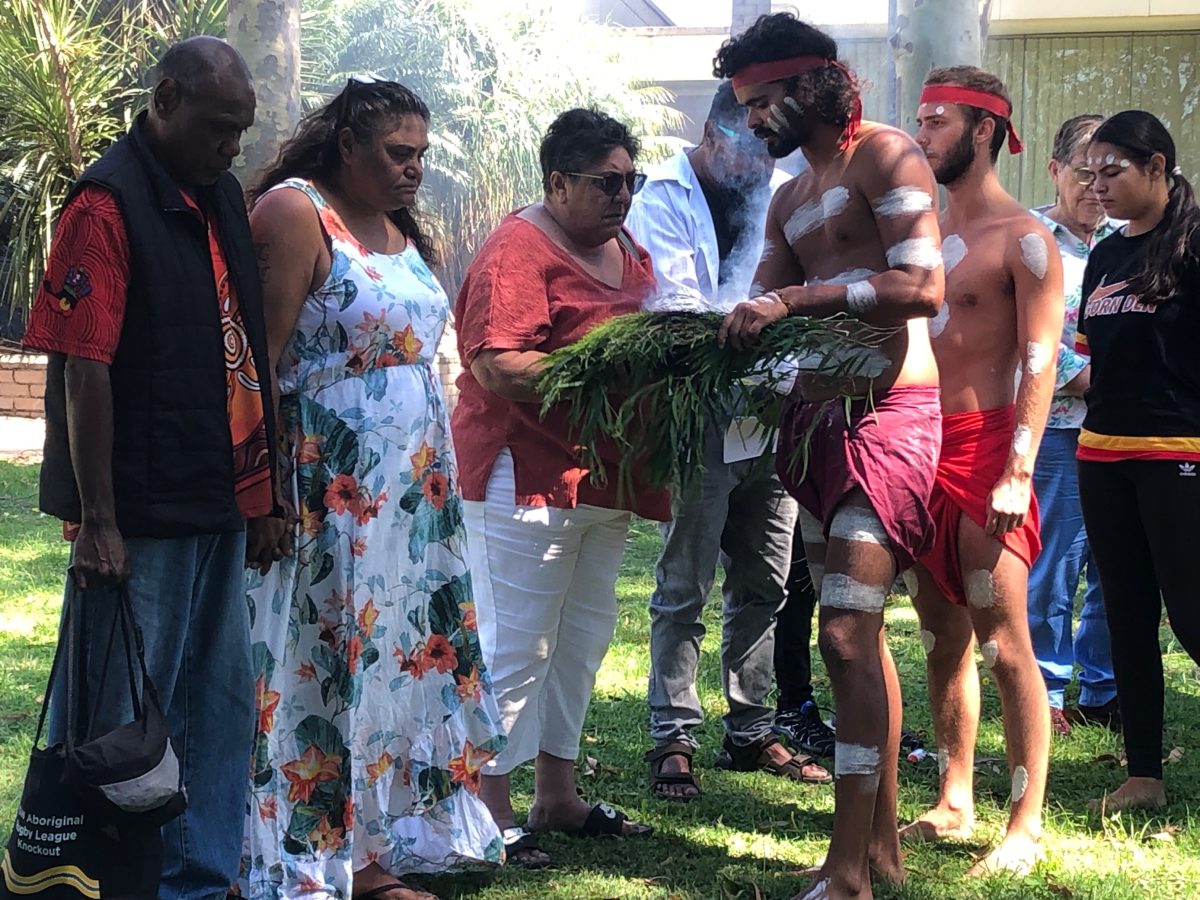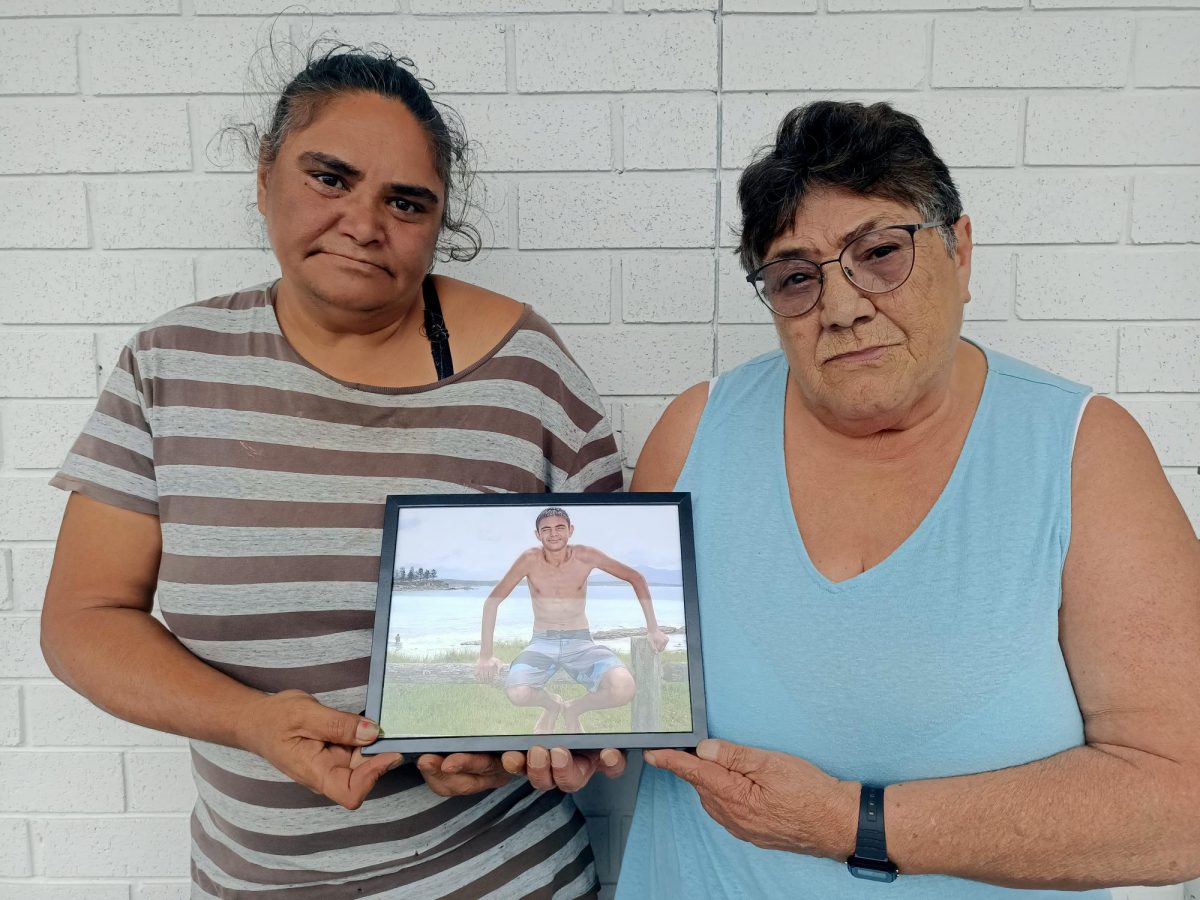
A smoking ceremony is held at the inquest hearings in Batemans Bay on Friday. Photo: National Justice Project.
First Nations readers are advised this article contains an image and name of a person who has died.
A family wants answers after a 17-year-old teenager was found dead at the Far South Coast region of Wallaga Lake while he had been in the care of the Department of Communities and Justice (DCJ).
“I really want DoCS to be held accountable,” George Campbell’s mother Karen Campbell wrote in a statement that was read to the NSW Coroners Court on Friday (10 February).
“DoCS needs to understand the impact and divide they had on my family. They need to see the bigger picture.”
The coronial inquest into the death of George, a Yuin-Dunghutti-Tharawal teen who was found dead on 10 March, 2018, after disappearing the day before, has been held in Batemans Bay over the past week.
When heartbreaking statements from his family were read out on the last day of the inquest’s hearings on Friday, Karen said her son’s death had left “the biggest hole in my heart”.

The death of George Campbell, pictured in the photo held by his mother Karen Campbell and grandmother Fay Campbell, has been the subject of an inquest. Photo: National Justice Project.
She said in the 1990s she had been told she couldn’t have children, “so when George came along he was a gift from God, he was a blessing”.
Karen said after DoCS had taken him away, “I did everything that they asked me and I did it all”.
“I’ll never see my eldest boy again. I will never hear him telling me that he loves me,” she said.
The inquest heard his family say how George was loving with his family, liked cars, wanted to play football and enjoyed fishing, even though he didn’t like eating fish.
Also, he was funny, “he made everyone laugh and he was always joking”.
“George’s death left me numb,” his grandmother Fay Campbell said.
“I won’t get to have a great-grandkid from George.”
Fay said DoCS should have given him counselling after members of his family died and should have listened to them about their concerns.
“I want accountability for not putting George with family. DoCS are supposed to put kids with family members,” she said.
A statement from George’s aunt and uncle, Rodney and Belinda Kelly, was also read to the court.
“To us, George will always be that fun-loving, caring and kind boy,” they said.
“Our family want to know what happened to George: were there any failures in the care and services given to George leading up to his passing, and why more time and effort was not given to ensure that one day George would return home.”
After the family’s statements, a smoking ceremony was held before the inquest’s hearings ended.
According to the National Justice Project, which is supporting George’s family, the inquest was a rare examination of the death of a person under state care and an opportunity to uncover possible systemic issues in the child protection system.
The project said evidence suggested the DCJ allegedly failed to adequately communicate important information to George’s psychologist and psychiatrist in the months leading up to his death, including the basic details of his carer and a background brief on the teenager.
Also, there was an alleged lack of continuity of care and follow-up when his caseworkers changed.
It was suspected that George died as a result of substance misuse.
The coroner will hand down her findings for the inquest on 6 June.







